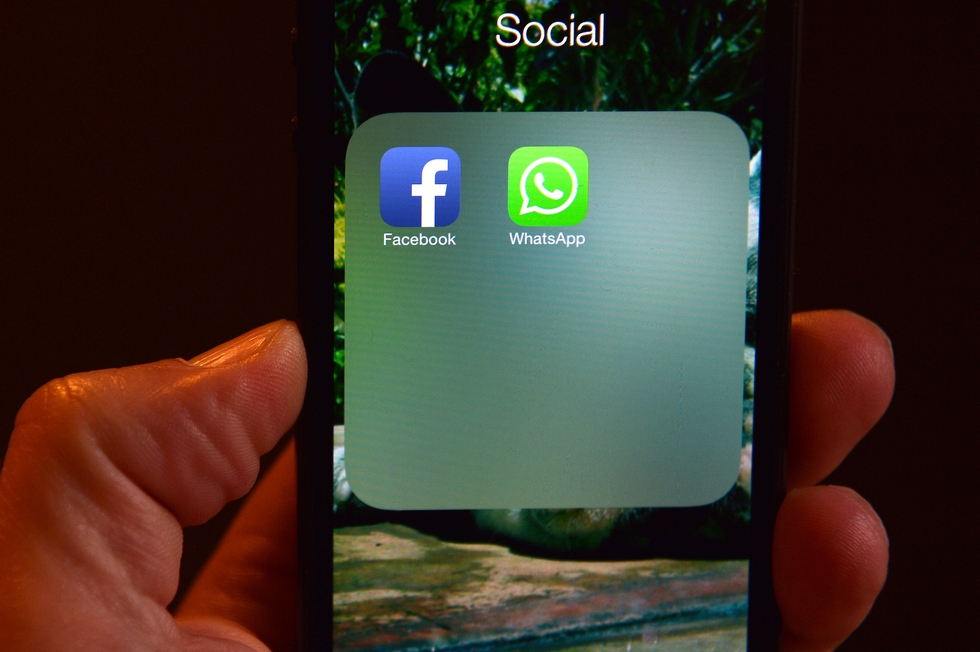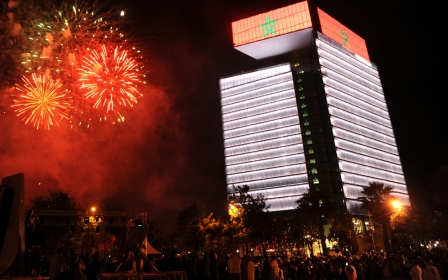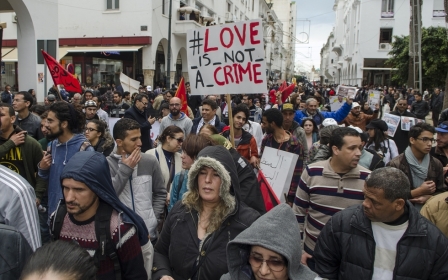Morocco banned Skype, Viber, WhatsApp and Facebook Messenger. It didn’t go down well

Moroccans and expatriates have taken their fury against the blocking of voice over IP (VoIP) calls to social networks, and have called for the boycott of the North African country's telecommunication operators that implemented the ban.
There are now growing calls for Moroccan king’s intervention to put pressure on the firms to restore internet call services.
Maroc Telecom, Meditel and Inwi, the three telecommunication service providers in Morocco, welcomed the New Year of 2016 with the ban of free mobile internet calls made through mobile phone connections.
Skype, Viber, Tango, WhatsApp and Facebook Messenger are among the applications whose VoIP calls have been blocked by telecom operators on 3G, and 4G connections in January and ADSL connections in February.
Morocco’s Telecommunications Regulatory National Agency (ANRT), which was behind the ban, justified its decision by stating that none of the services providing voice over IP (VoIP) or other "free internet calls" had the required licenses.
However, ANRT’s move was seen as a move to boost operators’ revenues from international calls.
Protests on social networks
The ban has led thousands of Moroccans to take part in a merciless campaign on social networks to protest against it while online petitions call for the restoration of VoIP services.
The three telecom operators have lost more than 100,000 “like” mentions within 48 hours of the launch of #OPEUnlike campaign by Marouane Lamharzi Alaoui on Facebook.
Alaoui created a webpage that allows the tracking in real time of the number of people who have unsubscribed from Facebook pages of the three operators. However, the impact of #OPEUnlike campaign will be difficult to quantify since the telecom firms may at any time buy “likes” to downplay the recent losses.
The losses of “likes” may seem to be trivial in the virtual world, but are huge in terms of corporate image and social responsibility towards its unhappy customers who have flooded telecom operators’ pages with negative comments.
The most common message forwarded on operators’ official Facebook pages is calling on all Moroccans to withdraw their “likes” until they bring them down from millions to thousands in response to banning VoIP calls.
ANRT ‘exceeded its powers’
For some, the ban is illegal, arguing that ANRT has within its powers the ability to "propose" laws, but not to enact them.
"In its 2004 decision subjecting VoIP to a prior license, ANRT wanted to apply a legal regime and therefore exceeded its powers. The decision can be challenged before the administrative court of Rabat by filing for an annulment for abuse of power," wrote Alaoui.
On its website, ANRT states it is in charge of the contribution to the proposal of the legal framework governing the telecommunications sector through the preparation of draft laws, decrees and ministerial orders. The agency is also in charge of conducting and implementing procedures of allocation and instruction of licences through competitive bidding.
ANRT points out that, in reference to Article 1 of Decision ANRT / DG / No. 04-04 on the status of IP telephony, commercial exploitation of the IP telephony service and the traffic carriage for a third party can only be done by telecom licensed operators.
It underlines that any commercial exploitation is prohibited and punishable in accordance with article 83 of Law 24-96 on post and telecommunications.
Telecom expert Alaa-eddine Kaddouri, told Atlantic Radio that VoIP providers do not commercially exploit phone lines which are already established.
“When you browse the internet and watch videos online, you do it through an already paid phone line. So the commercial exploitation is done by the telecom provider,” he said, explaining that the justification of commercial exploitation by VoIP providers is void because Skype and other applications are not paid for internet calls.
Boycott of Inwi-sponsored Maroc Web Awards
Moroccans did not limit themselves to online protests. Some people went farther by boycotting the famous “Morocco Web Awards”, organised by Inwi.
Last week, organisers of Maroc Web Awards (MWA) announced that Inwi, the event’s main sponsor and official partner, will not sponsor its ninth edition.
The telecom operator’s decision came a few days after the withdrawal of a number of candidates for MWA to protest against the blocking of VoIP.
Marocopédia, finalist in the "Annual Web application" category, withdrew from the competition of the ninth Morocco Web Awards.
“The basic foundation of Marocopédia is the creation of a network for sharing and communication around Moroccan culture. Marocopédia and its members use VoIP for their work, and especially to communicate with socio-cultural actors in Morocco and with Moroccans living abroad," explained Marocopédia which called the VoIP ban censorship.
“Our decision is directed against the official sponsor, one of the telephone operators which also has a stranglehold on the prohibition of VoIP,” added the solidarity encyclopaedia.
Some candidates and members of the jury also announced their withdrawal from the event.
A few minutes after the announcement of the withdrawal of Inwi, internet users proposed to launch a crowdfunding campaign to fund the event and welcomed MWA sponsor’s decision to hold the event without its official partner. Some of them even called on withdrawn candidates to return to the competition in order to support the event’s organising committee.
Calls for King Mohammed VI to intervene
Many children of expatriates living in Morocco and Moroccans living abroad made emotional appeals to King Mohammed VI to restore VoIP calls so that they can communicate with their relatives abroad and in the North African kingdom respectively. Their letters are still being uploaded on “Stop the VOIP ban in Morocco” on Facebook.
Petitions have also been launched on the internet, including a letter of protest to the ANRT president, which has already gathered almost 10,000 signatures.
While petitions, appeals and boycotts are the only weapons to fight the VoIP ban, Moroccans’ patience might run out sooner or later in the face of a profit-driven oligopoly backed by ANRT.
A million-dollar question remains: will the king intervene to lift the ban?
- Saad Guerraoui is a senior editor at Middle East Online and regular contributor to the Arab Weekly newspaper. He graduated from Newport University (London Campus) with a PhD in Business Administration. He has appeared on various satellite TV channels as an analyst.
The views expressed in this article belong to the author and do not necessarily reflect the editorial policy of Middle East Eye
Photo: The Facebook and WhatsApp applications' icons are displayed on a smartphone on 20 February, 2014 in Rome (AFP).
New MEE newsletter: Jerusalem Dispatch
Sign up to get the latest insights and analysis on Israel-Palestine, alongside Turkey Unpacked and other MEE newsletters
Middle East Eye delivers independent and unrivalled coverage and analysis of the Middle East, North Africa and beyond. To learn more about republishing this content and the associated fees, please fill out this form. More about MEE can be found here.





